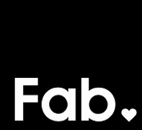It’s been a tough week for Fab. Yesterday, word came that the company is being sued for trademark infringement and unfair competition by shoes and apparel site Just Fab, and today Fab is announcing over 100 employees will be laid off from its Berlin offices. The company, which just last month announced the close of $150 million in Series D funding, says the layoffs are meant to reduce redundancies. However, the company notes that it will have over 600 employees by the end of today’s actions, and is still hiring for more than 70 positions globally.
TechCrunch has also heard that Fab.com’s “Chief European Officer” in Germany, Maria Molland, had actually resigned at the beginning of June, though her LinkedIn lists her still as a Fab.com employee. We’ve also heard that the “over 100” employees being laid off is actually closer to 150.
Up until recently, Fab had been essentially running two separate flash sales businesses, explains CEO Jason Goldberg in a blog post about today’s layoffs — one in the U.S. and the other in Europe. But alongside the news of the funding raise, the company had also announced that it was pivoting its business model (yes, again) away from flash sales, in order to focus on where more of customers’ dollars were being spent — in its online “lifestyle shop.” Fab had said that two-thirds of its sales were not coming from flash sales, so it had needed to rebrand. It seems Fab.com was really becoming known for home goods, which account for 50 percent of sales.
Goldberg basically says today that the flash sales model was difficult to scale, noting that Fab wanted to sell the same products globally to its customers. “That was hard to do with flash sales, as products would come and go from Fab daily,” he wrote in the post. “The nature of flash sales dictates that products are not kept in inventory and are thus very difficult to ship fast or for free. However, fast and free shipping is possible with an inventory-planning model,” he says. The company is now working toward that.
With the change to Fab’s business model, the company says it now plans to consolidate most of its merchandising, marketing and operations teams into a single global team in New York. It will continue to operate local customer service, returns, shipping and logistics, finance, IT and HR positions in Europe at both its Berlin and Eindhoven offices.
Meanwhile, the company is planning to double its engineering team and hire in its sourcing and planning departments.
More than 30 people in Fab’s Berlin office are being asked to move to New York, while others are being laid off immediately or asked to remain in a transitional phase. Seventy of the employees began their “garden leave” (the approximate German term for paid leave) this week. Fab says it had 696 employees worldwide, which means the layoffs accounted for roughly 15 percent of its current workforce.
Europe is a big market for Fab.com, and especially the U.K., which generates nearly 40 percent of its sales in Europe and is its fastest-growing market outside the U.S. The company is also going after Asia, which is why Fab brought on Tencent and Itochu as partners, which was also alluded to in today’s announcement.
Growing the business to a worldwide scale is Fab’s overarching goal here, which means it will have to make strategic cuts like this when needed. Goldberg had previously said that there are only four e-commerce companies in the world that are valued at more than $10 billion: Amazon, Alibaba, eBay, and Rakuten. He wants Fab.com to be the fifth. But to do so, Fab has needed to invest in enhancements to its supply chain, logistics, customer service, technology and merchandising, and it’s also now bringing more product design in-house. Fab expects to reach profitability in its U.S. and European operations by Q4 2014 or Q1 2015, Goldberg also noted a few weeks ago.
The layoffs also come at a time when some reports have been critical of Fab.com’s missteps, as well as its company culture, where, as Bloomberg found, “employees are asked to send e-mails in a certain font, use high-quality paper and always ‘be Fab.'” We’ve also heard that the culture at Fab has not been great. Goldberg fought back against Bloomberg’s claims, but many of the bullet points in that earlier post ended up confirming the original reporting.
Update: Goldberg responded to say that Maria’s departure was unrelated – ” A couple of months ago Maria came to me to let me know that she was interested in starting her own company. I have been very supportive of that and am helping her. It’s the best reason for an exec to leave a startup.” He also notes that in terms of net terminations, Fab expects to be around -70 by year end.
